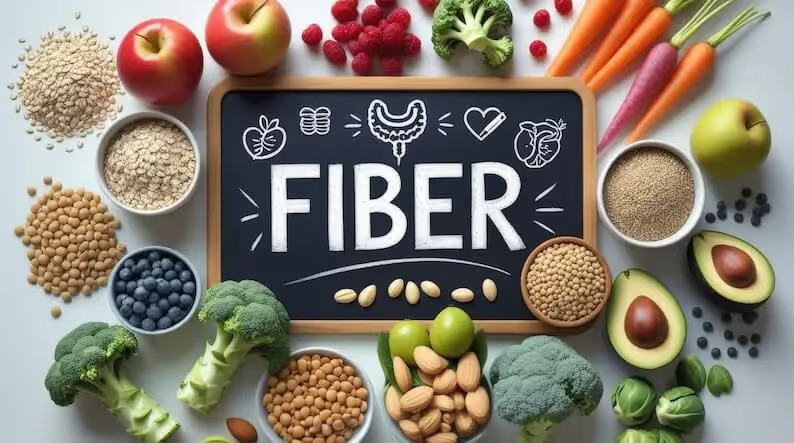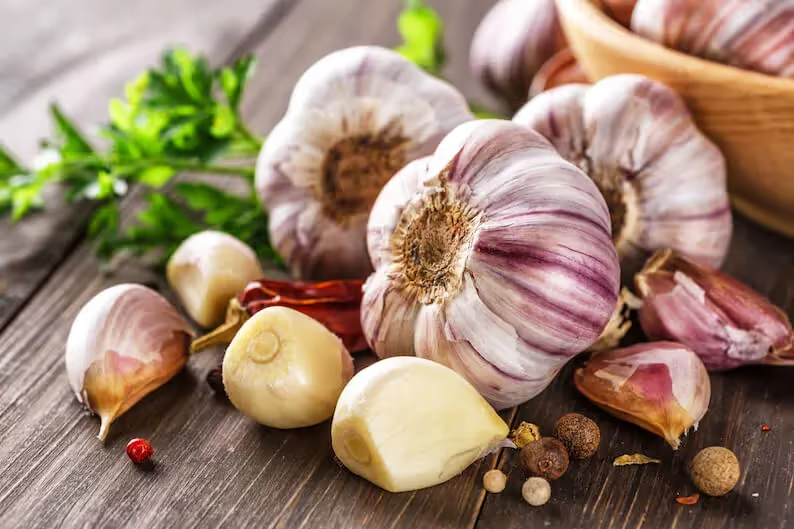Fiber is an essential part of a healthy diet, playing a crucial role in digestion and overall well-being. Despite its importance, many people don't eat enough fiber in their daily diets. Understanding what fiber is, its health benefits, and the best sources of high-fiber foods can help you make healthier choices and improve your overall quality of life.
What Is Fiber?
Dietary fiber is a type of carbohydrate that the body cannot digest. Unlike other carbohydrates that break down into sugar molecules, fiber passes through the digestive system largely intact. There are two main types of fiber: soluble fibers and insoluble fibers. Each type plays a different role in supporting health.
Soluble Fibers
Soluble fiber dissolves in water and forms a gel-like substance in the digestive system. This type of fiber helps lower cholesterol levels and stabilize blood sugar levels by slowing down the absorption of sugar. Soluble fiber is found in foods such as oats, barley, apples, oranges, carrots, and legumes like kidney beans.
Insoluble Fibers
Insoluble fiber does not dissolve in water and helps add bulk to stool, making it easier to pass. This type of fiber supports a healthy digestive system and helps prevent constipation. Foods high in insoluble fiber include whole grains, nuts, seeds, and many vegetables.
Health Benefits of a High-Fiber Diet
A diet rich in fiber offers numerous health benefits, ranging from improved digestion to reduced risk of chronic diseases. Here are some of the key advantages of a high-fiber diet:
- Supports Digestive Health
Fiber adds bulk to stool and helps food move smoothly through the digestive tract. This can help prevent constipation and promote a healthy gut microbiome, which plays a role in overall digestive health.
- Helps Maintain a Healthy Weight
High-fiber foods take longer to chew and digest, which helps you feel full for longer. This can prevent overeating and assist in weight management. Foods high in fiber, such as fruits, vegetables, and whole grains, are also generally lower in calories.
- Regulates Blood Sugar Levels
Soluble fiber slows down the absorption of sugar, helping to prevent spikes and crashes in blood sugar levels. This is particularly beneficial for individuals with diabetes or those at risk of developing the condition.
- Lowers Cholesterol Levels
Fiber helps lower cholesterol levels by binding to cholesterol molecules and removing them from the body. A diet rich in soluble fiber can reduce LDL (bad) cholesterol, reducing the risk of heart disease.
- Promotes Heart Health
By lowering cholesterol and regulating blood sugar, fiber plays an essential role in reducing the risk of heart disease. Studies have shown that people who consume a high-fiber diet have a lower risk of developing heart-related conditions.
Best High-Fiber Foods
Eating a variety of fiber-rich foods can help ensure you get the right balance of soluble and insoluble fiber. Here are some of the best sources of dietary fiber: Fruits and Vegetables
- Apples
- Oranges
- Carrots
- Broccoli
- Brussels sprouts
- Dried fruit (such as prunes, figs, and apricots)
Legumes and Beans
- Kidney beans
- Lentils
- Chickpeas
- Black beans
- Green peas
Whole Grains
- Oats
- Brown rice
- Whole wheat bread
- Barley
- Quinoa
Nuts and Seeds
- Almonds
- Chia seeds
- Flaxseeds
- Sunflower seeds
- Walnuts
How Much Fiber Do You Need?
The recommended daily amount of fiber varies by age and gender. The general guidelines are:
- Women: 21-25 grams per day
- Men: 30-38 grams per day
Unfortunately, many people consume far less than the recommended daily amount of fiber. Incorporating more fiber-rich foods into your diet can help bridge this gap.
Added Fiber and Fiber Supplements
For those who struggle to get enough fiber from food alone, fiber supplements can be a helpful alternative. These supplements, available in powder or pill form, can provide additional fiber when needed. However, it's always best to get fiber from natural sources whenever possible, as whole foods contain other essential nutrients that support overall health.
Psyllium Husk: A Powerful Fiber Supplement
Psyllium husk is a soluble fiber derived from the seeds of the Plantago ovata plant. It is commonly used as a natural fiber supplement to support digestive health and regulate blood sugar levels. Psyllium husk has the ability to absorb water, forming a gel-like substance that softens stool and promotes regular bowel movements. It is often found in products like Metamucil and is widely used to help with constipation, diarrhea, and irritable bowel syndrome (IBS). Benefits of Psyllium Husk
- Supports Digestive Health: Helps with constipation by adding bulk to stool and promoting regularity.
- Regulates Blood Sugar Levels: Slows the absorption of sugar, making it beneficial for individuals with diabetes.
- Lowers Cholesterol Levels: Can help reduce LDL cholesterol, supporting heart health.
- Aids in Weight Management: Helps you feel full for longer, reducing hunger and overeating.
Psyllium husk is a great addition to a high-fiber diet, but it is important to drink plenty of water when consuming it to prevent digestive discomfort.
Tips for Adding More Fiber to Your Diet
If you're looking to increase your fiber intake, here are some easy ways to do so:
- Start your day with a bowl of oatmeal or whole grain cereal.
- Snack on fresh fruits, vegetables, or dried fruit instead of processed snacks.
- Add kidney beans or lentils to soups, salads, and stews.
- Replace white bread and pasta with whole grain options.
- Incorporate nuts and seeds into meals and snacks.
- Drink plenty of water to help fiber absorb water and move through the digestive system more easily.
Eat More Fiber for Better Health
Fiber is a powerful nutrient that provides a wide range of health benefits, from improving digestion to reducing the risk of heart disease and maintaining healthy cholesterol levels. By including more high-fiber foods in your diet and ensuring you meet the recommended daily amount of fiber, you can support overall health and well-being. Whether through whole foods or added fiber sources, making fiber a priority in your diet is a simple yet effective way to improve your health.




%20(1).jpg)